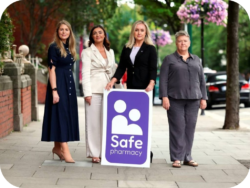- Shortage of qualified pharmacists across the country.
- Risk of pharmacy closures and reduction in services if action not taken imminently.
- IPU calling on Minister Harris to facilitate more spaces for pharmacy students for the new academic year as a matter of urgency.
A survey conducted by the Irish Pharmacy Union (IPU) has shown that Irish pharmacies are suffering due to a chronic lack of qualified pharmacists available to work in community pharmacies. This, together with ongoing absences due to COVID-19 is resulting in some pharmacies being required to reduce hours, or in some cases close for certain days as they struggle to cope with staff shortages.
The survey, which was analysed by Behaviour and Attitudes and based on the responses of over 1,000 pharmacists, showed that more than half of the pharmacies surveyed had at least one open pharmacist vacancy in the past year, with more than one third indicating that these vacancies had remained for more than 6 months and up to one year. The report shows that at least 20% of pharmacies are relying on pharmacist locums to stay open.
IPU President, Dermot Twomey said “Pharmacist shortages are placing the community pharmacy sector under severe pressure. We have a chronic lack of qualified pharmacists available to work in community pharmacies and it is having a detrimental impact on the level of service pharmacies can deliver. This is placing pharmacists under immense strain, often working without breaks and we are also spending too much time on administrative tasks due to endless red tape which is compounding this issue. If we can’t increase the supply of qualified pharmacists, the sector will be unable to keep up with demand and patient care will suffer.”
Of the pharmacists surveyed, 42% were first registered in the UK (GB &NI). This high percentage of pharmacists qualifying outside our jurisdiction is a significant concern and highlights the glaring lack of places for students to study pharmacy here in Ireland. Additionally, the report shows the severe lack of qualified pharmacists trained outside the EU choosing to work in Ireland and recommends that the registration process for non-EU pharmacists to facilitate them working in Ireland is expedited as a priority.
The shortage of pharmacists comes at a time when the demands on pharmacies have increased significantly. Pharmacies are striving to maintain services to patients and the public, but reduced hours and temporary closures cannot be ruled out.
Mr Twomey continued “We would ask all members of the public to be patient when visiting their pharmacy and understand certain services may take longer than usual. Where possible, ordering repeat medications in advance would be a great assistance to your pharmacist, while also ensuring you receive your medications without undue delays.”
“The fact of the matter is that Ireland is simply not training enough pharmacists. Half of those who work in the sector today were forced to train overseas. This is untenable in a modern healthcare system. Minister Harris has implemented additional places for medical students and should now do likewise for pharmacists and other allied healthcare professionals. We are again calling on Minister Harris to make more spaces available in Ireland’s universities for pharmacy students” Mr Twomey concluded.








